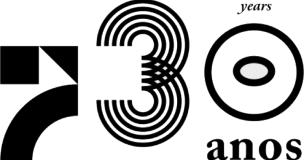MOVEMENT: PEOPLE AND IDEAS BETWEEN PLACES
This thematic line addresses, summarises and lends interdisciplinary
depth to a meaningful set of research, partnerships and joint
initiatives conducted by the CEIS20. One of the core concerns of the
thematic line is the territory. As the bibliography has highlighted, the
territory is, at the same time and in variable proportions, functional
and symbolic. As for Europe, these coordinates are essential for
identifying, researching and applying knowledge of the conditions of
massive migrations, social exclusion and ethnic-anthropological
conflicts.
Consequently, another core concern is to study the
conditions of European social cohesion and the types of European
presence in a changing World. The thematic line arose from the
assumption that there is knowledge collected by several researchers from
several of the CEIS20's groups, which fosters systematic research into
the processes of the movement of people and ideas, which make it
possible to identify changes in migration flows in a global World and
the impact of such space-temporal changes on the complexity of
developing identities.
Researchers have been focusing particularly on the following topics:
1. The reception of trends of thought and new political, social,
scientific or cultural outlooks and ways of projecting Portuguese
production;
2. Tension inside and outside, and connections with tensions between tradition and modernity, development and the lagging behind;
3. Emigration types and relevant effects;
4. Colonisation, decolonisation and the post-colonial context;
5. The reality of insularity, focusing particularly on the enhancement of the Atlantic space;
6. Migrations and exile, in a variety of contexts – political, social, economic, cultural.
The thematic line also addresses the multiple processes of
redefining the national context, which vary depending on whether they
take place in Europe, Africa and South America.
This line also
launches the foundations for research into the conditions for the shift
of political and economic decision-making entities to outside Europe and
further research into relations with the Far East. Therefore, this line
includes guest researchers who conduct research into the international
irradiation of the Portuguese culture and, more broadly, of European
culture.
Overall, the research conducted is anchored methodologically
speaking in a post-colonial conscience and it addresses the ties
between territories and identities, firmly guided by the idea of origin
and the purpose of inscribing the study of the movement of people, goods
and ideas in growing transnational and transcultural concerns.
The
thematic line provides the ideal framework for the network on Migrations
and Exiles, which envisages pooling experts, both members and
non-members of the CEIS20, and promoting the research conducted under
the topic migrations /exile. Although it focuses primarily on studies
conducted by the Portuguese groups, the network is open to all who, as
researchers of this topic, may provide input into the discussion, foster
the exchange of experience and information, supporting theoretical
reflection and the development of the appropriate methodologies.
However, due to the need to know the reasons for emigration/exile and
the realities experienced in the settlement areas of Portuguese
emigrants and exiles, some boundaries must be established. Therefore,
researchers who have worked in the territories with greater
concentration of Portuguese emigrants, namely across the Americas,
Spain, France and Africa, have been considered.
The thematic line
also provides the appropriate horizon for the integrated enhancement of
possibilities underlying a vast set of partnerships, with local and
regional stakeholders which, in that scale, structure the territory.
1. Organizational structure
For this line, a bimonthly seminar is scheduled to be held from
2015-2020. This seminar will be a space of convergence, streamlining and
scientific stabilisation of the inputs provided by researchers from the
Groups directly involved in the development of the thematic line. The
seminar is closely connected to the 3rd Cycle diploma (PhD) of
Contemporary Studies, which professors and doctoral students are
encouraged to attend in a continuous and fruitful manner. The seminar is
coordinated with equivalent input from other - national and
international - Centres, enjoying high reputation in research into this
subject matter. The seminar receives outside researchers who provide
original outlooks into their own work. The seminar supervisor shall
adopt the necessary procedures to ensure the success of initiatives and
subsequent collaborative work.
The thematic line is thus organised
around a global strategy of initiatives, which includes the Groups and
PhD students, as well as the publications of the Centre (journal,
reports and collections), coordinated by the Researcher responsible for
this line.
The autonomous nature of the groups encourages
productivity of the thematic line. Freedom, diversity and creativity in
the groups are essential for specialised research, which is also part of
the thematic line when required.
The publications 'Estudos do
Século XX' and 'Cadernos do CEIS20' - the Centre's scientific production
- will be regularly dedicated to this thematic line, thus encouraging
reflection on this subject and combining the Group's various outlooks. A
biannual meeting will be held to present the group's preliminary
findings, and discuss the subject on a national and international level.
The publications coordinated by in-house CEIS20 researchers are also
open to submissions on these topics.
2. Objectives
The following are the specific objectives:
1. Enhancing research anchored in a post-colonial conscience and
addressing the ties between territories and identities, firmly guided by
the idea of origin and the purpose of inscribing the study of the
movement of people, goods and ideas in growing transnational and
transcultural concerns;
2. Consolidating the network of Migrations and Exiles with the
following goals: congregate experts in view of disseminating the
findings of the research and studies in connection with
migrations/exile; fostering discussion, exchange experience and
information supporting theoretical and methodological reflections;
3. Promoting the convergence of research lines focus on:
refugees/exiles, emigrants/immigrants; nationalisms/regionalisms;
African states; journalism providing the setting for the dissemination
of knowledge and culture; sports as a social and political phenomenon;
history education and reflection on historical memory; cultural heritage
and museum studies;
4. Enhancing research into geopolitics and migrations: the
construction of identities in regional, national and transnational
contexts on the insular, European and Atlantic space; the elites role
and powers in the European and Atlantic context – scientific
territoriality; production, movement, social-cultural and institutional
exchange phenomena in the European and Atlantic context; discourse and
projects about European transcultural memory; diplomacy in times of
crisis; insular horizons and identity of the Azores, outermost regions;
the concept of Atlantic Community; Azores as a strategic area;
5. Enhancing types of mutual understanding between Europe and the Far East (especially Macau and China);
6. Studying, in the field of medicine and health sciences, the
Portuguese reception method and mechanisms of scientific and
technological innovation; the location, the importance and the
projection of Portuguese scientific and technological innovation; the
movement of knowledge, raging from national to international,
traditional to modern; popular to erudite;
7. Strengthening the thematic line of Images and Cultures on the
Move in Portuguese Cinematography: development and update of the Online
Dictionary of the Memory of the Portuguese Colonial Empire, based on
fiction film from Angola, Brazil, Green Cape, Guinea Bissau, Mozambique,
Portugal and East Timor; pursuing the Film cycle about productions in
Portuguese-speaking countries, presenting research findings and films;
enhancing the knowledge of the Portuguese film production, creating
teams from several countries and effective communication systems;
analysing colonial representation in Portuguese documentary film from
1920 to 1950;
8. Consolidating the Festival Film and the City: based on the
hypothesis of the congenital connection between film production and the
city, the group looks into how film invented the cities it screened,
while inspiring and disseminating powerful urban imagery;
9. Consolidating fundamental research into Education, Territory and
Sustainable Development: relating education to the concept of
sustainable development; studying Educational Letters as legitimising
tool of strategic planning and development of the school network;
analysing educational policies of local governments; designing an
alternative reorganisation of local educational policies; projecting new
options for the organisation of educational supply based on the
coordination between institutions, organised groups and available
resources; promoting the preservation of heritage and research into its
pedagogical and didactic appropriation;
10. Studying educational policies and organising national education
systems, with phenomena like globalisation, transnationalisation and
local development;
11. Conducting in-depth research in the field of Communication
Sciences, focusing particularly on large contemporary discussions;
12. Establishing innovative forms of digital access to cultural heritage.





